Dominica
They say that if Columbus were to revisit the Caribbean, there’s one island that he would recognize: Dominica. That’s because this island has changed little since 1493. For this reason, Dominica has earned the nickname “The Nature Island of the Caribbean.”
I had the pleasure of sailing from Guadeloupe to Dominica with Express des Isles. I have yet to find a sailboat heading south that needs crew, so I’ve done most of my Caribbean island hopping by plane. But frankly, short hops by plane are a pain. Sigh. I do as instructed and arrive at the airport two hours before my flight. I remove my shoes, empty my pockets, unpack my laptop, and pass through metal detectors. I’m getting tired of security procedures, long waits at terminals, slow boarding processes and cramped seating. My other pet peeve about air travel is that airports are usually far from where I want to be. When I exit a terminal, I don’t enjoy negotiating with taxi drivers who ask twice what the fare should be. This is why I travel by ferry whenever I can. With ferries, I avoid airport headaches. I love it when my boat docks in the center of the town where I want to be.
Last week, my ferry sailed away from the fancy resorts, cultured towns, and golden beaches of Guadeloupe. Two and a half hours later, I was on the rugged and unkempt coast of Dominica. Coming into Roseau harbor, I spotted the luxurious Fort Young Hotel. The rest of the island’s capital city looked “relaxed.” Fishermen unloaded their catch onto sidewalks. Women hawked fruit under umbrellas. Dogs slept under derelict cars. I cleared immigration and walked to my B&B.
Dominica was under British control from 1783 until its independence in 1978. So, it’s no surprise that everyone here speaks English, and cars drive on the left. What surprised me was the run-down, disheveled appearance of Roseau and the nearby fishing villages. After chatting with the locals, I learned that Dominica lies in the “hurricane zone.” Every 5-10 years, this island gets clobbered by a hurricane. In 2017, category 5 Maria destroyed 90% of the buildings on the island. The banana farms haven’t recovered. The cathedral is still boarded up. The cathedral’s maintenance man told me that there’s no money to make repairs.
Dominica is hoping to develop a tourist economy. Roseau has a new cruise ship pier. Many of the town’s buildings have fresh coats of paint. Unfortunately, frequent hurricanes and rocky shorelines tend to discourage tourism and keep this island looking as it was when Columbus sailed by.
Dominica has a lot to offer to botanists, zoologists, geologists and adventurers. The interior of the island looks like Jurassic Park. It’s a rain forest filled with dense jungle, rare birds and plants and wonderful waterfalls.
At the base of every waterfall is a pool to swim in. Some of the pools are chilly; others are nicely warmed thanks to geothermal springs. Yes, Dominica is a volcanic island. Although there haven’t been any major eruptions in the past 700 years, nine of Dominica’s volcanic peaks have exploded violently in the past 50,000 years. The city of Roseau sits on a pyroclastic flow produced by the largest eruption in the Caribbean in the past 200,000 years. Knowing that Dominica could explode some day is a good reason to see it now.
One of my favorite waterfalls was hidden deep within Titou Gorge, a narrow canyon carved over millennia through volcanic tuff by a fast-moving stream. To visit this waterfall, I swam upstream 150 meters through a canyon five meters wide and fifteen meters deep. Here and there, rays of sunlight penetrated the jungle above to give the crystal clear waters an emerald glow. This was such a beautiful experience that I swam the canyon twice. I’m glad my iPhone is waterproof. Afterwards, I warmed up in an adjacent hot spring.
No matter where you go, what really makes one place different from another is the people. People create culture. The resilient Dominicans are friendly and cheerful. Here’s the woman who always has a smile and barbecued chicken for me when I pass her on the road. I can’t resist the smells of her spicy sauces coming off the grill.
Not far from the chicken lady is an infamous character named Screw. He had the good fortune to buy land that straddles a geothermal stream. Screw also had the inspiration and energy to build a spa on top of his hot spring. Tour guides bring their clients to soak in the hot springs, enjoy the healing effect of the mineral waters, and partake in Screw’s Rastafarian hospitality.
There was one thing I saw in Dominica that I’ve never seen before. The place is called Champagne Reef. This reef is bisected by a submarine crack in the side of a volcano. From this crack, hot gases percolate. The effect is a continuous outpouring of tiny bubbles that filter up through corals, sponges and schools of fish. Snorkeling here has been compared to swimming in champagne. Hence the name.
In light of its financial hardships, Dominica has adopted some inventive ways to generate revenue. If you donate $100,000 USD to the Dominican Economic Diversification Fund, you will be granted immediate Dominican citizenship. You don’t even have to visit the island to make this happen. In exchange for your donation, you’ll receive a 10-year Dominican passport, renewable for life. If you don’t live in Dominica, you’ll also enjoy tax-free status on all foreign income, capital gains, gifts, wealth or inheritances. At my B&B, I met a surgeon from Libya who recently purchased Dominican citizenship. With his Dominican passport, he can travel visa-free or visa on arrival to more than 115 countries including the European Union and the Schengen Area. The doctor explained that he can now attend international conferences more easily with his Dominican passport than with a Libyan passport.
Dominica is also taking steps to become an international financial center offering tax-free status to companies relocating from abroad. Although some internet businesses and hedge funds have already relocated to Dominica, it’s not known how many companies benefit from tax-free status because of the strict confidentiality the government enforces. If you’d like to know more about becoming a Dominican citizen or relocating your business to Dominica, click here.

Regarding Covid travel restrictions: I’m starting to see a pattern. British islands and former British colonies are more strict about Covid rules than French islands. Coming into Dominica, I had to produce my Covid vaccination card as well as a negative antigen test taken the previous day. Unlike in St. Martin or Guadeloupe, people here wear masks, especially indoors. In any case, Covid regulations are gradually being relaxed everywhere. Tourists are returning to the Caribbean, even to the most undeveloped islands like Dominica. Now is a good time to travel.
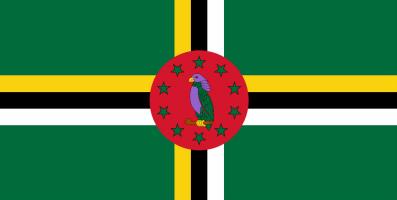
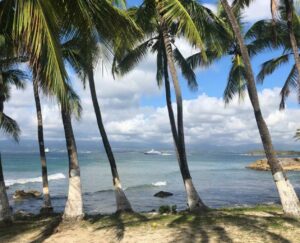
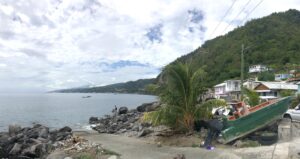
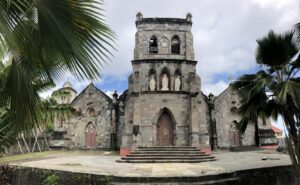
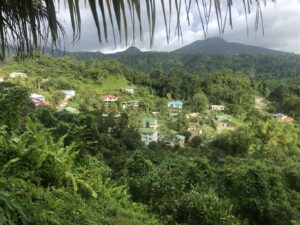
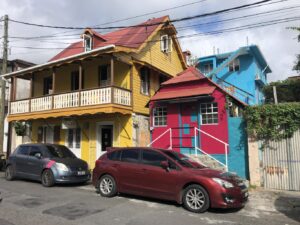
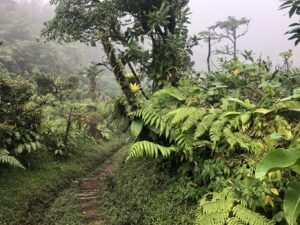
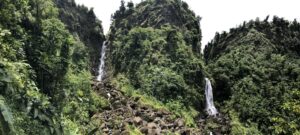
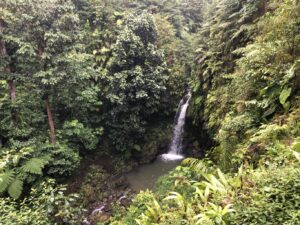
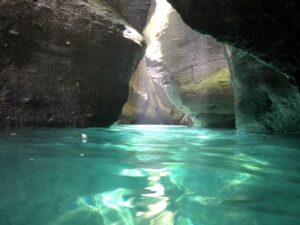
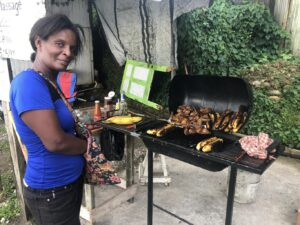
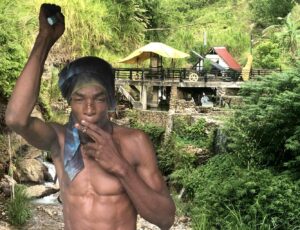

Recent Comments